How many real roots will your function have if the discriminant is negative?
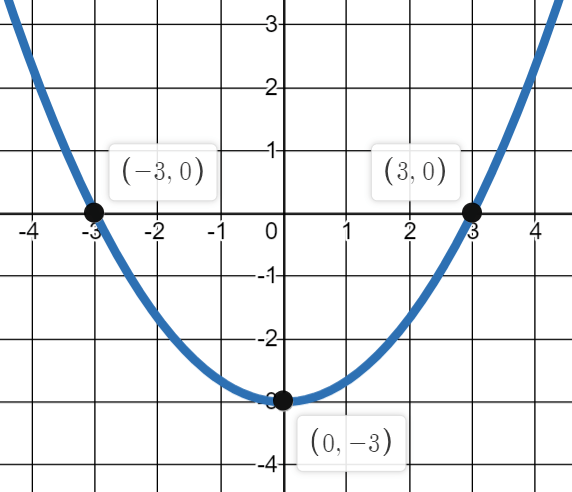
What is the domain of this function?
(-oo,oo)
Write the degree, leading coefficient, and end behavior for the following function:
y=-(x-4)^3(x-1)(x+2)
Degree: 5
Leading Coefficient: -1
End Behavior
as x -> infinity, y -> -infinity
as x-> -infinity, y -> infinity
Write the equation for each parent function:
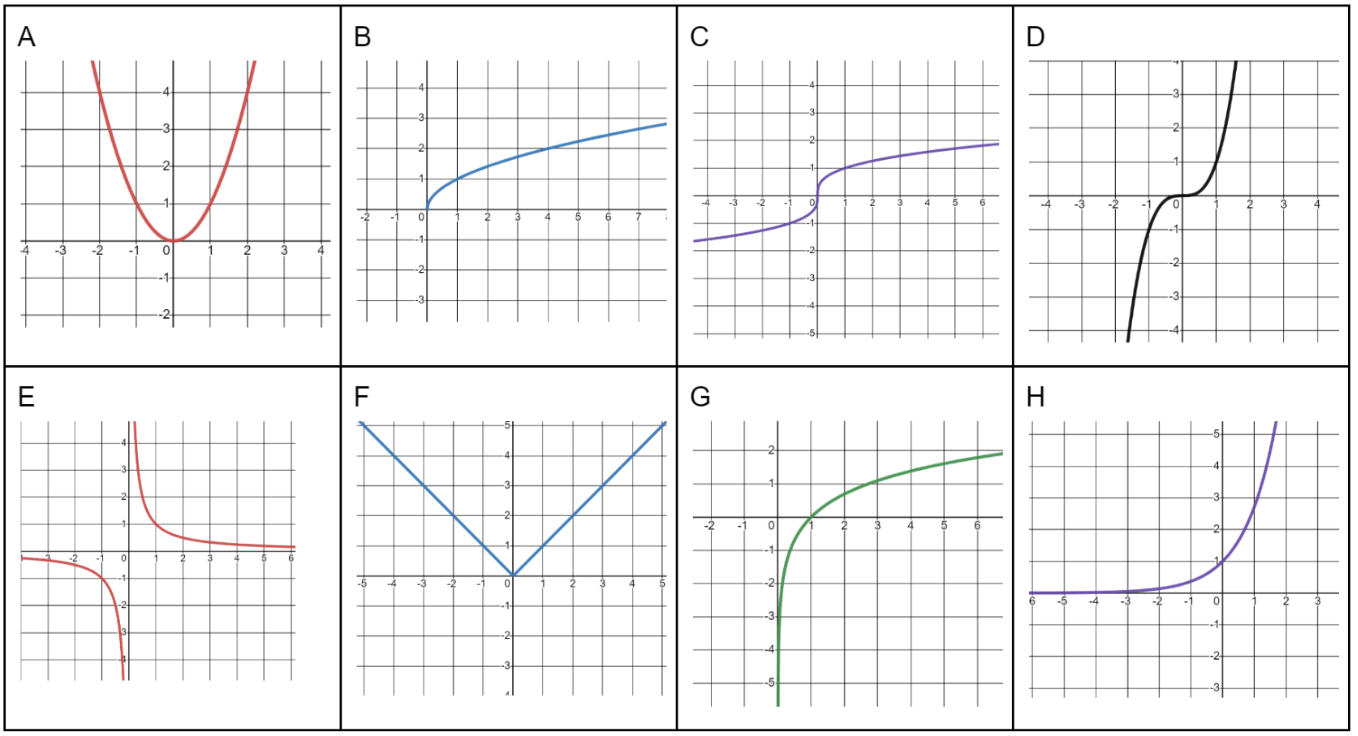
A(x)=x^2
B(x)=sqrt(x)
C(x)=root(3)(x)
D(x)=x^3
E(x)=1/x
F(x)=abs(x)
G(x)=ln(x)
H(x)=e^x
Evalutate:
log_3(1)
0
What can you say about the discriminant for this function?
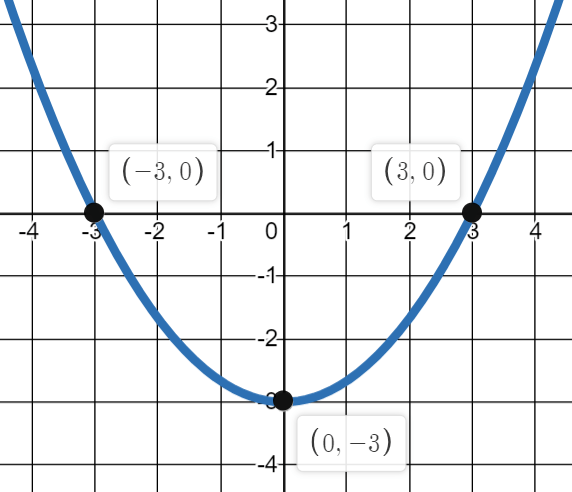
The discriminant must be positive, because the function has two real roots.
Write the domain and range for the following function:
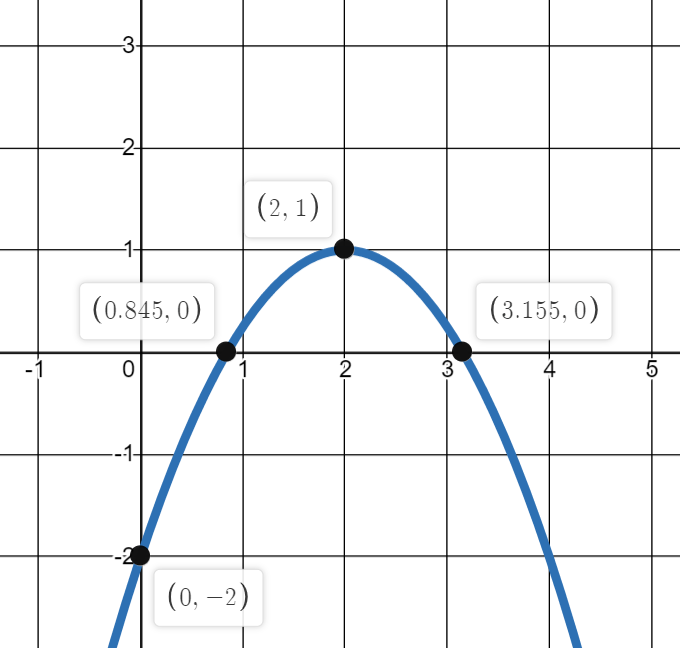
Domain:
(-oo, oo)
Range:
(-oo, 1]
Write an equation for the following function:
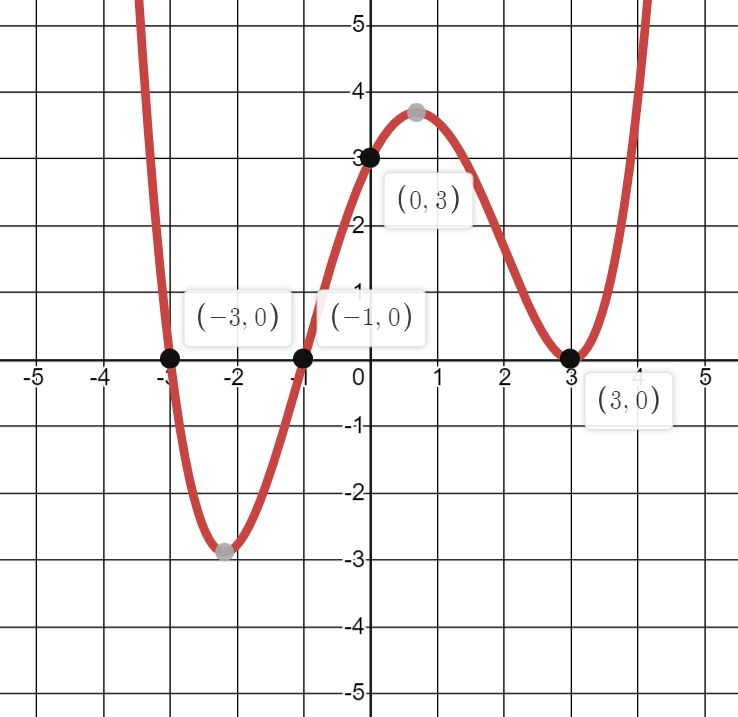
f(x)=1/9(x-3)^2(x+3)(x+1)
What transformations have occurred to create the function
g(x)=3e^-x+2
from the function f(x)=e^x ?
The graph of the function has been reflected over the y-axis, dilated vertically by a factor of 3, and been translated up 2 units.
Evaluate:
sin(-(5pi)/6)
1/2
Write the vertex form equation for this function:
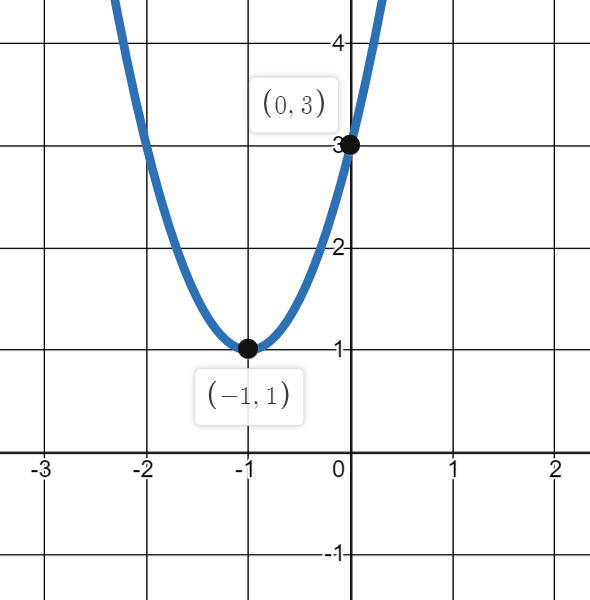
y=2(x+1)^2+1
Write the domain and range for this function:
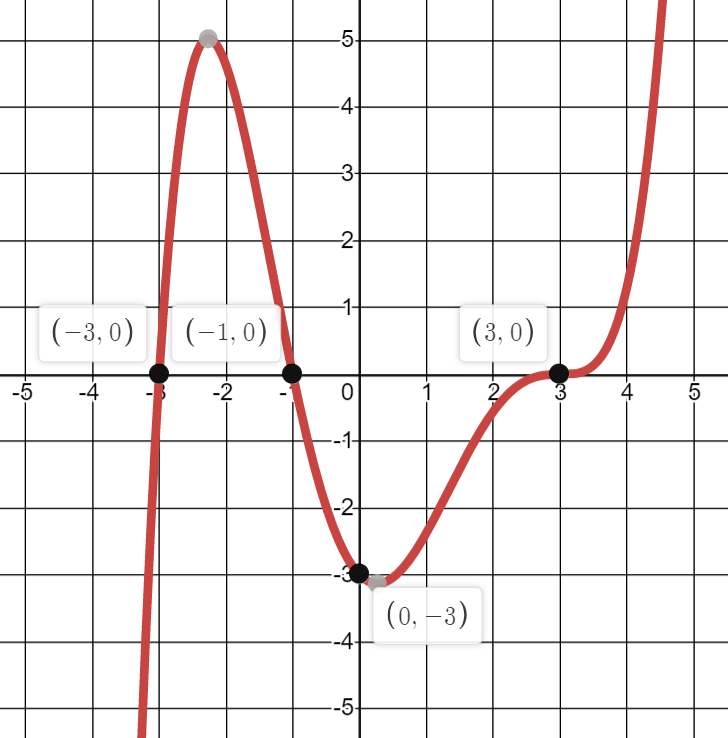
Domain:
(-oo,oo)
Range:
(-oo,oo)
Write an equation for the following function:
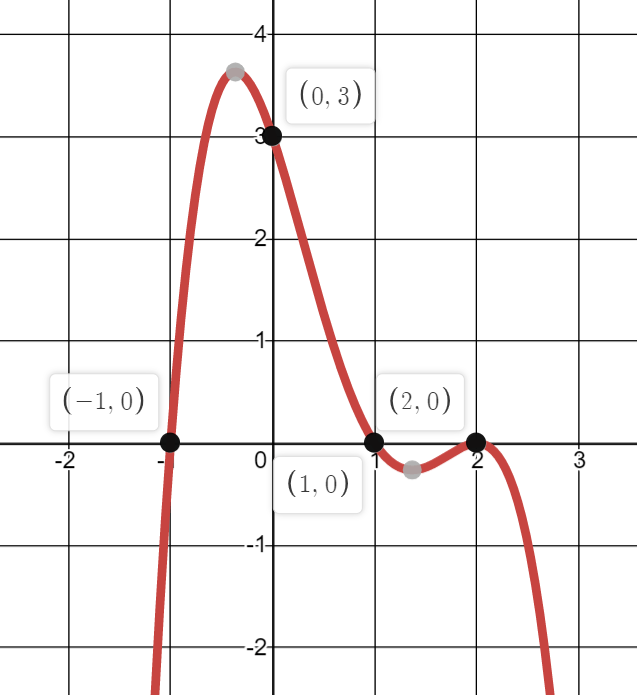
-3/4(x+1)(x-1)(x-2)^2
Write the inverse of the following function:
y=-(x-3)^3-5
y=-root(3)(x+5)+3
Condense:
log(x^2y)-log(x)+log(y)
log(xy^2)
Find the vertex of the following function:
f(x)=x^2-20x+98
(10, -2)
What are the increasing intervals for this function?
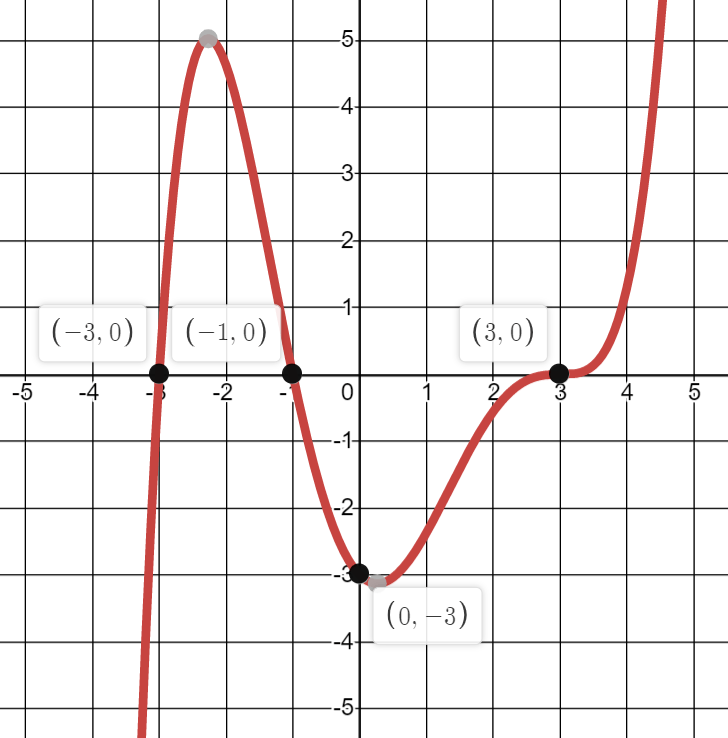
(-oo, -2.25)
and
(0.25, oo)
Write a quartic function that...
Has ONLY the roots 3, 4, and 1
Has a y-intercept of 12
f(x)=(x-3)(x-4)(x-1)^2
OR
f(x)=1/3(x-3)^2(x-4)(x-1)
OR
f(x)=1/4(x-3)(x-4)^2(x-1)
Write the equation for the following function: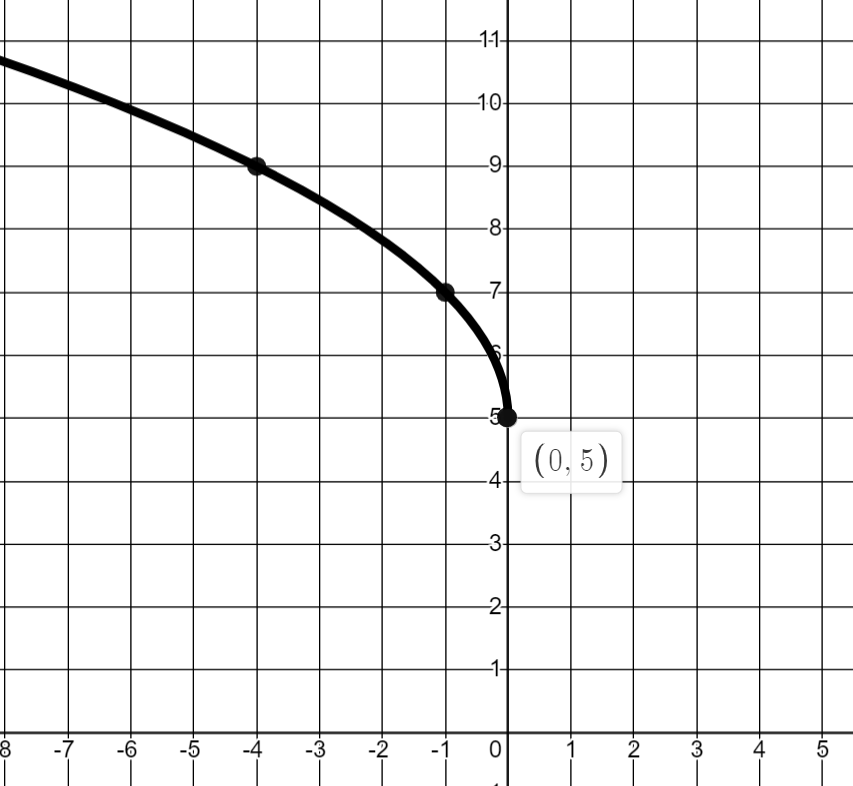
y=2sqrt(-x)+5
Name an angle such that sin(theta)=sin((7pi)/9) , but
the angle is NOT coterminal to
(7pi)/9
-(16pi)/9,(2pi)/9,(20pi)/9,...
Rewrite the following function in vertex form:
y=x^2-x
y=(x-1/2)^2-1/4
For the following function f(x), write the intervals where
f(x) >=0
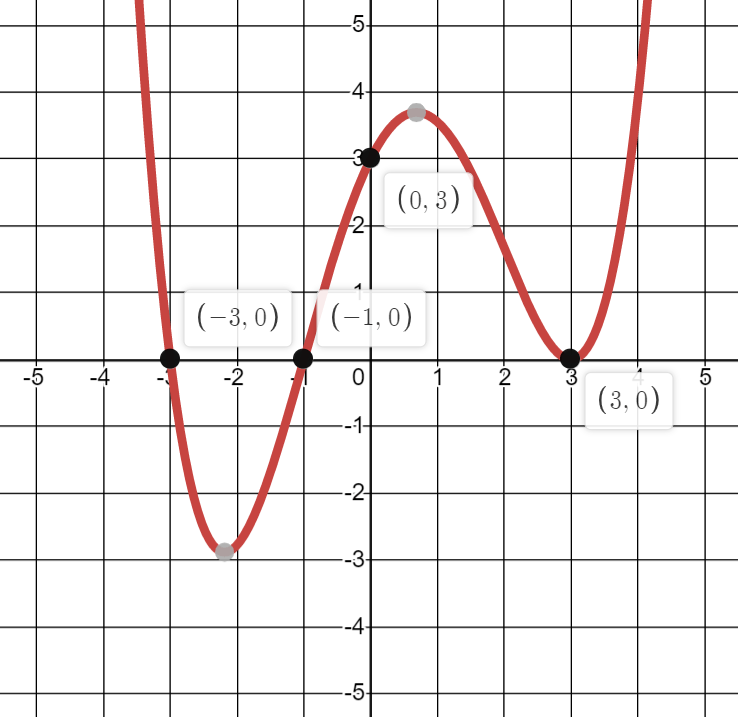
(-oo, -3]
and
[-1,oo)
Write a quartic function that...
Has roots 3i and 2-i
Has a y-intercept of 90
y=2(x-3i)(x+3i)(x-2+i)(x-2-i)
or equivalent
Solve:
sqrt(x+9)=1+sqrt(x)
Solution:
x=5
Extraneous solution:
x=-8
Condense and simplify:
2log(x-2)+log(x-4)-log(x^2-6x+8)
log(x-2)